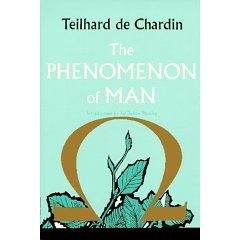

To Russia With Love, and Venus retrograde
A Russian reader asked if I read Anne Rice. First, thank you for contacting me, Russia! Second, yes, I read Anne Rice. I greatly admire her ability to create a world that sucks you in and doesn’t let you go. I am not one of those people who adore vampires–really, during love-making, I don’t want my blood sucked–but I do love a good story, well told. Rice can do that. I hear she’s crazy religious now, which I regret.
But I do understand it. The call of spirit is always there. In my mind, writers are especially susceptible to the lure of the universe of creation. We hear it in the ear of our mind and its siren call is exquisite, undeniable. I can well understand the appeal and solace of a fundamentalist religion. To feel, every moment, that intimate ecstasy, that ravishing certainty…. Then there’s the other part of me that says, Vishnu is Jesus is Zeus is Adonai is Buddha, and it’s my uncertainty, my longing, that is holy. Heschel called faith “a blush before God.” Well, let’s keep blushing. Let’s not take on the anemia of knowing. It’s the approach, laden with wonder, that fortifies us, and praises the divine.
Now: we are a few days into Venus retrograde. In the Vedic system, some authorities say that Venus retrograde in Pisces, the sign of its exaltation, acts debilitated. I am not certain of that. The jury is still out for me.
What I have seen with retrograde planets is that they are internalized. A certain process of curiosity and exploration about them becomes necessary. When Mercury turns retrograde–communication and computers go haywire. You can straighten them out, you just have to ask yourself a series of questions: Why did this happen? How do I untangle this? What’s the deeper issue? With computers, I’ve seen a few times that there have been problems brewing, and Mercury moving backward brings those problems to light. You just can’t ignore the virus, or the erratic motherboard, anymore. Is that a debility, to deal with problems?
I like Vedic astrology and use it because it works. But I can’t forget that it is Moon centered, while Western astrology is sun centered. In Vedic astrology, there is an underlying assumption that what is comfortable, what solaces the moon, is what is best. In Western astrology, the underlying assumption is that we are all here to self-actualize, to become our fullest soul selves–to shine our light. So I always weigh the two systems, along with other archetypal systems. For me, it’s about having a variety of tools with which to understand.
Hoisted on My Own Petard
During one of my blogtalk radio interviews to promote IMMORTAL, I spoke about publishing houses and writers and the need for the two to find a common ground. Today that interviewer contacted me, asking if she could use some quotes she had culled from the interview. Sure, I said. It won’t be the first or last time my own words have come back to bite me in the tushie.
Here’s the thing: Publishing is in a sad state right now. One house is foundering like the Titanic. Another house fired a publisher and is being restructured into a larger conglomerate. Editors have been fired. The ones who remain are afraid to buy anything.
But is firing people and re-organizing really going to help the bottom line? I mean, is it really going to entice people to buy more books?
The problem, as I see it, is two-fold: 1, marketing people decide which books editors get to buy, not editors, and 2, writers all want to publish beautifully written literary novels that no one but their mother and best friend will buy.
Books are not widgets. Books are the Keepers of Soul. For thousands of years, people have been going to war over their Holy Books. They’re still wreaking death, destruction, dismemberment and other varieties of intolerance because of their Holy Books. Books have this extra dimension, this extra quality, that MUST be taken into account. Even by marketing people, who can be soul-less creatures.
BUT. Writers also need to take the market into account. We writers can be all too self-indulgent, because we are in love with words, with prose, with story in its most abstruse forms. But most people don’t want to buy a book just because it has pretty words and the story takes an intellectually shimmering shape.
There’s got to be a middle ground. I say: let editors have more say and marketing people LESS say. One reason for this: editors love books, while marketers love money. When marketers chose which books get published, we get the current state of book selling. That is, I go to the bookstore and 99% of what I see is crap. Most of it is all the same. Badly written serial-killer-suspense books, formula mysteries, predictable action-adventure or supernatural yarns, and celebu-drek. Then there are those select ‘literary’ tomes that someone has chosen to anoint, and those ‘literary’ novels are self-congratulatory, precious, self-indulgent, and just plain boring. They also have unlikeable characters. WHY WOULD ANYONE BUY ANY OF IT???
I read everything, really everything. I will even pick up a Harlequin romance. I consider this my market research. I just finished a book that epitomizes what is wrong with publishing today. It is Brad Meltzer’s BOOK OF LIES.
I apologize to Mr. Meltzer for the bad review, and I can only say that plenty of bloggers have trashed my novel IMMORTAL.
However: BOOK OF LIES was confusing, hard to follow, and clearly created to capitalize on the DA VINCI CODE-secret-Biblical-artifact-craze, or what’s left of it. It is more than obvious that some marketing person yelped with glee: “Hey, Cain and Abel, biblical secret, we got a flavor of the DA VINCI CODE and we can even pull in the Superman fans: yes!”
Unfortunately, it’s just not that interesting a story. No one cares much about how Cain killed Abel and if the weapon survived. Yes, we did care about Jesus being married and whether or not the Church suppressed that information for reasons of secular power. Now, that story has been told: MOVE ON.
Meltzer’s prose isn’t horrible. He seems to be trying with his characters and with the relationships between them. It just never all comes together to make me as a reader care about anyone or anything. And the sentimental glop (spoiler alert!) of “Tell your stories to your children” that is supposed to be the big finale, well, if the story were riveting, it would be a let-down. But since this novel is just so functional, utilitarian, and forgettable, it comes across as annoying and silly. Drivel.
But the appeal to a marketing director is so blatantly obvious, how could this novel NOT be published?
So novels will continue to be boring, silly, and the same, because marketers are infected with the notion, “If it sold once, we can beat the dead horse into a gelatinous pulp and sell it a million times.”
So general readers are bored and disaffected and they don’t spend their money on books. And writers aren’t motivated to do more than 1, appeal to marketers or 2, indulge our worst, most narcissistic love of an abstruse craft.
Bill Murray in TOOTSIE, and what a novelist wants
Bill Murray in TOOTSIE, and what a novelist wants
Jeff the playwright, played by Bill Murray: “I don’t want a full house at the Winter Garden. I want people who just came out of the worst rainstorm in history. These are people who are alive on the planet… until they dry off. I wish I had a theater that was only open when it rained.”

How Buddha erred, why Writer’s colonies are mistakes, and Maya Angelou
I have definite opinions. They’re idiosyncratic, but usually carefully considered. Take my stance on the Buddha, whom I revere. I’ve had palpable experiences during meditation of the Buddha’s radiant compassion. The Buddha is enlightened and I am not. Still, as much as I sense the holiness of this archetypal being, I think the human Gautama made a mistake when he abandoned his wife and child to seek enlightenment. God and liberation are eternal; They would have waited for Gautama’s child to go off to college and his wife to start a career as a caterer so she wasn’t stuck with empty nest syndrome. Maybe this life is an illusion, but the illusion must be lived with integrity.

Coherence theory, and networking
Moral relativism is a failed social experiment. So is moral fundamentalism. I blame modern psychotherapy–partly–for the degradation of a culture that can not tolerate accountability and discernment. It’s why so many TV shows and movies are about serial killers: we can not conceive of a bad guy anymore. The only “bad guy” we can all agree on is a mass murderer. Even that is in danger of being OKified by the shrinked up zeitgeist: ergo Dexter, the lovable serial killer who kills serial killers. We want to rehabilitate everyone in this sophomoric, brainless insistence that there is no evil.
But somewhere between the rocks and the hard place of relativism and fundamentalism is a unitive philosophy that embraces what Teilhard de Chardin called humanism, but still leaves room for shame and discernment. Yes, shame has an important place in social interaction. So does spirituality. I am playing around with the middle way in my head, and I call it coherence theory.
I got to hear some comments about Teilhard de Chardin at a dinner last night that honors classicism. The art critic Donald Kuspit received an award for excellence in the arts, and he spoke about the failure of the avant-guard, which has turned into an empty “frantic trendiness.” It was a great relief to hear someone state outright that the emperor has no clothes. My husband Sabin Howard, being a sculptor, drags me to a lot of art shows, and I have seen a lot of twelfth rate crap. In fact, as soon as anyone says they are an “abstract expressionist,” I know they suck.
Speaking of art that sucks: I was seated at dinner next to some stuffed shirts who run an arts club, and on hearing I was a novelist, they told me with much self-importance that they were honoring Chinua Achebe. I groaned. “For what? His novel ‘Things Fall Apart’ is so badly written! It’s boring and unreadable! He gets attention just because he’s the only one out of Nigeria.”
Immediately, the stuffed shirts wanted to prove that I was rascist and asked me if Obama was just getting votes because he was black.
“That’s not why I voted for him,” I answered. “I voted for him because he’s smart and inspiring, I think he can truly bring change, and I want change!” That shut them up long enough for me to carry on for a while about what a piece of cockroach manure “Things Fall Apart” is. The stuffed shirts managed to save themselves by turning away to talk to other people, and I seized the opportunity to make vomiting motions in their direction. It got a laugh out of my husband but probably didn’t endear me to the artsy fartsy shirts.
Later, in the cab ride home, the great Burt Silverman, a realist portrait painter who actually has a foundation in craftsmanship and tradition, twitted me about my oration on the indignity of art. “You were networking?” he asked wryly. Probably not.
Update from a few years later: The stuffed shirt who insulted me embezzled money from the arts club–a LOT of money. Sometimes my instincts hit the bull’s eye.



